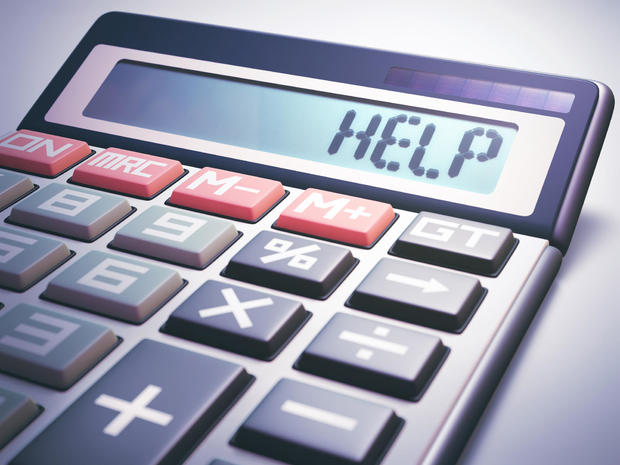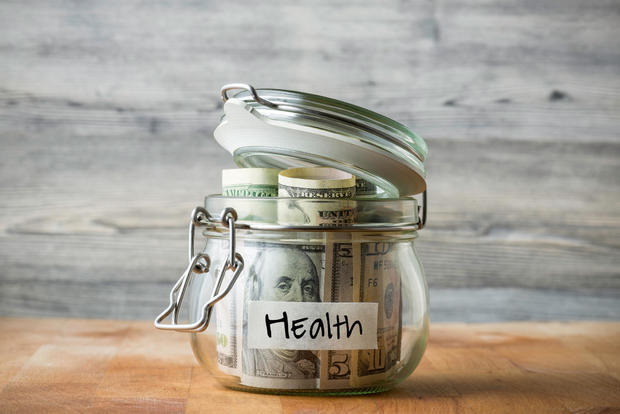5 groups who may get no relief from the GOP tax bill
Republicans say they want their tax code to give middle-class Americans a break, but some analysts are warning a few vulnerable groups may not get relief.
The biggest winners under the GOP tax plan, released on Thursday, are corporations and the rich, according to both the Institute on Taxation and Economic Policy and the Center for American Progress. The richest 1 percent of US households would receive 31 percent of the tax cut next year, the largest share among all income groups, the ITEP said.
The Tax Cuts and Jobs Act will likely benefit some low-wage and middle-class Americans, although the tax cuts will likely be meager for many households. The poorest 20 percent of Americans will receive an average annual tax reduction of $130 in 2018, or less than 1 percent of their income, while the richest 1 percent will see their taxes fall by 2.4 percent of their income, the ITEP estimated.
On top of that, the tax bill removes or caps several popular tax deductions, which may add to the hurdles some Americans face in managing their finances.
"A closer look at the details of this tax plan indicates that lawmakers are most serious about ensuring that they lower tax bills for the highest-earning households," Alan Essig, ITEP's executive director, said in a statement.
Critics say corporations would come out ahead because the proposal would slash the business tax rate to 20 percent from 35 percent. While the proposal maintains the top personal income tax rate of 39.6 percent, it would eventually eliminate the estate tax and the alternative minimum tax, which are levied on either wealthy or higher-income households, respectively.
To be sure, the House GOP tax plan is likely to evolve as lawmakers wrangle with the details and as special interests press for changes. It's also possible a tax reform bill could fizzle, even with Republicans controlling both chambers of Congress, as some provisions -- such as capping the popular mortgage interest deduction -- come under fire from lobbyists, lawmakers and consumers.
Read on to learn about the five types of taxpayers who might not benefit under the House GOP proposal.
1. Americans with high medical expenses
About 9 million Americans -- or 6 percent of tax filers -- rely on the medical expense deduction, which costs the government about $10 billion. It's considered a modest tax break, but it would face the chopping block under the House GOP plan.
The deduction can be used for households that spend more than 10 percent of their income on medical costs. The tax break can be helpful for Americans facing high health care costs for treatment and services that aren't covered by health insurance, such as nursing home care, dental procedures and fertility treatment.
Eliminating the medical expense deduction is "one of the harshest ways that the House plan hurts middle-class families," according to the Center for American Progress. Its analysis finds that some households with high medical bills will face tax increases compared with current tax law.
Their analysis determined that a married couple with two children and adjusted gross income of $95,000 who also face medical costs of $46,000 from an out-of-network procedure would see their taxes rise by $2,839.
2. Students
Current and former students could get dinged under the House GOP plan, which would bar taxpayers from deducting student loan interest from their taxable income.
The plan would treat tuition reductions as taxable income and eliminate the Lifetime Learning Credit, which provides up to $2,000 per year to people who enroll in job training or other educational programs.
The Center for American Progress examined the case of a hypothetical graduate student who is also working. Because she wouldn't be able to deduct her student loan interest and would no longer benefit from the Lifetime Learning Credit, she would pay $1,476 more in taxes on her $27,000 in annual income.
3. Poor single parents
Some low-income parents may also face a tougher time under the tax proposals. Currently, poor parents benefit from the refundable Earned Income Tax Credit and the partially refundable Child Tax Credit.
Under the new tax plan, the Child Tax Credit is made eligible to higher-income families, but it won't change for lower-income households. At the same time, the EITC would adjust for inflation using the slower-rising "chained Consumer Price Index," which would reduce the impact of the EITC over time. Under those calculations, a single parent with adjusted gross income of $16,000 would pay $12 more in taxes in 2018, the Center for American Progress estimates.
4. Some middle-class families with children
Middle-class families with children who currently itemize their deductions may end up paying more over time, the Center for American Progress estimates. Because of the larger $24,400 standard deduction, the family wouldn't itemize. It would also lose personal exemptions, which will be eliminated under the House plan.
When the family flexibility tax credit disappears in 2022, that middle-class family would see their tax bill start to rise in 2023, the group said. In six years, a family with three children and $110,000 in income would pay $627 more per year in taxes.
5. Residents of high-tax states
Residents of states like New Jersey, where property taxes are high, could end up without much of a benefit, thanks to the proposal's provision to cap the property tax deduction at $10,000. More than one-third of New Jersey residents claim the federal deduction for real estate taxes. About $9,500 on average is deducted by each claimant, or more than double the national average, according The Pew Charitable Trusts.
Aside from New Jersey, other high-tax states whose residents could be hurt by the changes include New York and California. All of those states were won by Hillary Clinton, President Donald Trump's Democratic rival, in the 2016 election.
More than one-quarter of New Jersey taxpayers would face an average tax hike of $2,200 by 2027 if the plan becomes law, according to New Jersey Policy Perspective. About 1.6 million New Jersey households deduct $14.9 billion in local property taxes a year, and about one-quarter of the state's towns assess average property tax bills above $10,000, it added.









